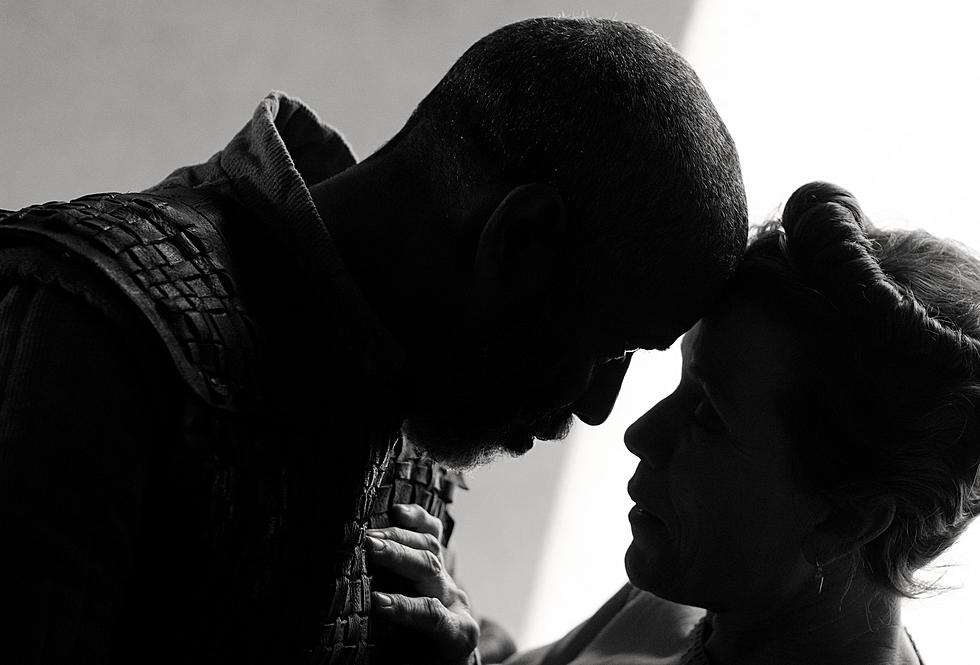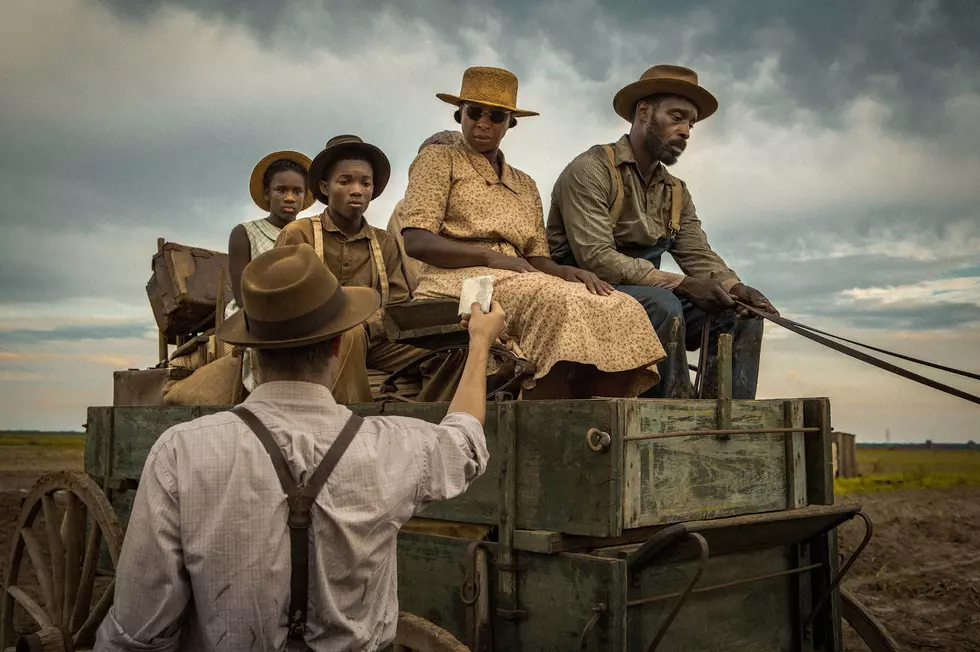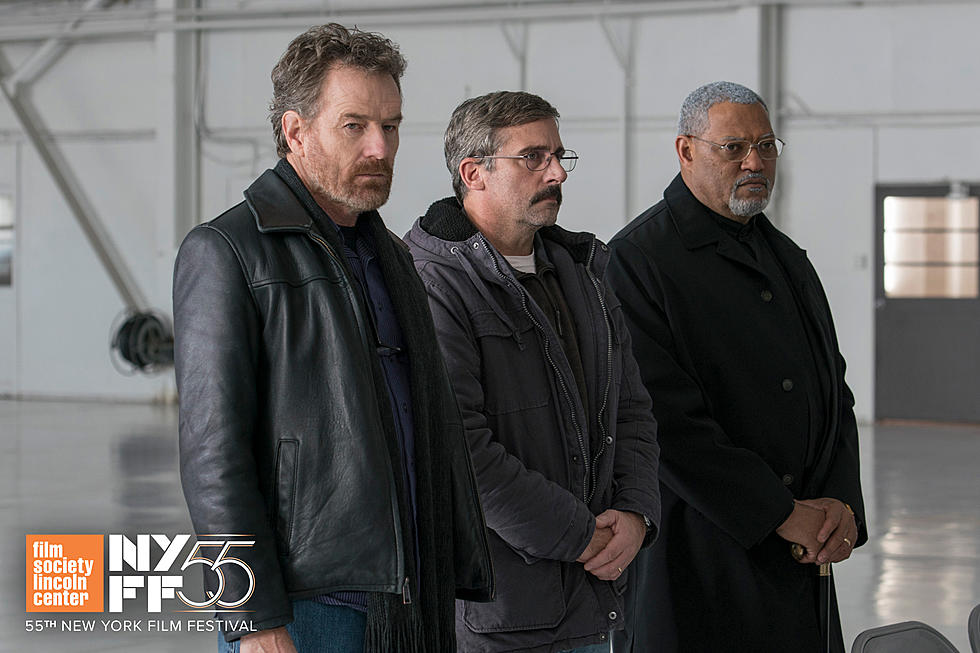
This Year’s New York Film Festival Was All About Spotlighting Women
If you look back on the last few years of the New York Film Festival, you’ll find a common, though unsurprising theme: Male-dominated narratives, often about white men’s woes and triumphs. Last year’s lineup had The Walk, Steve Jobs, and Miles Ahead, 2014 was notable for the premieres of Inherent Vice, Birdman, and Foxcatcher, and the 2013 fest debuted Her, The Secret Life of Walter Mitty, and Captain Phillips. There have been some notable exceptions, like Carol, Clouds of Sils Maria, and Gone Girl, but stories about women have often been a relegated to the background at the fest. That is, until this year.
The 54th New York Film Festival opened with Ava DuVernay’s 13th, making her the fourth female director to kick off the fest and the first to open it with a documentary. From there the lineup included a bevy of movies about women with some of the best performances of the year. There were two new films featuring Isabelle Huppert (Elle and Things to Come), three performances from Kristen Stewart (Personal Shopper, Certain Women, and Billy Lynn’s Long Halftime Walk), and two roles that reminded us of the quiet power of Michelle Williams (Manchester By the Sea and Certain Women).
While there's plenty of room for improvement in the future (a better ratio of male-to-female directors, for one), this year offered a refreshing break from the usual male-centric narratives. Here's a look at the highlights from this year's festival, which emphasized female talent and told complex stories about women.
13th
DuVernay’s documentary about mass incarceration and America’s history of racism doesn’t focus on women’s stories in particular, but it’s an example of an important, unflinching work from a female filmmaker. DuVernay is only the fourth female director to open the New York Film Festival, and there were huge gaps between those before her – Agnès Jaoui in 2004, Agnieszka Holland in 1992, and Agnes Varda in 1977. This year may have signaled a change for the festival with DuVernay at the helm, a filmmaker unafraid to explore the major problems facing our country today.
20th Century Women
“You don’t need a man to raise a man,” Elle Fanning’s Julie says in 20th Century Women. Set in 1979, Mike Mills’ latest finds three generations of women teaching a young boy about everything from feminism to orgasms. When Annette Bening’s single mother Dorothea worries she won’t be able to raise her son Jamie (Lucas Jade Zumann) on her own, she enlists two other women in his life to help. There’s Abbie (Greta Gerwig), a pink-haired photographer who lives with Dorothea, and Julie, a rebellious teenager Jamie’s in love with.
While it’s essentially a coming-of-age tale about a teenage boy, Mills’ dramedy uses that narrative as an entry point to explore the intersecting lives of three women, and how their perspectives inform one another. As Dorothea, Abbie, and Julie endow Jamie with individual bits of wisdom, they also begin to learn more about themselves, acting as mirrors reflecting the parts of each other they refuse to see. The film asks if there’s one right way to be a feminist, to be a woman, or a man, or simply a person in touch with their sensitivity and open to change? Like his previous effort Beginners, Mills’ has crafted a heartfelt story about learning to open up and explore new parts of yourself despite your age. Bening gives a performance full of warmth and humor that deserves some awards recognition.
Certain Women
I wrote about Certain Women back at Sundance, and while I have my qualms with two-thirds of its unfulfilled narrative, it’s still deserving of mention here. In Certain Women Kelly Reichardt presents three vignettes about Montana women, one about a lawyer (Laura Dern), one about a woman purchasing sandstone (Michelle Williams), and a story about a farmer’s (Lily Gladstone) desire for another women (Kristen Stewart). As a cohesive film, it doesn’t entirely work, but there’s a lot to appreciate about this film and the way it quietly subverts expectations of women’s roles and behaviors in situations usually occupied by men.
Dern’s lawyer is a woman whose voice is often ignored by the men in her life, and yet she uses it to help talk a former client out of a tense hostage situation. Williams’ Gina, described by her husband as “the boss” of the family, negotiates a sale with a stern confidence unexpected of traditional female behavior. And the final story explores one shy woman’s unsaid desires for another, and the blurry lines between platonic and romantic connections.
Personal Shopper
In Personal Shopper, Kristen Stewart plays Maureen, who buys clothes for a model in Paris. In her spare time, she tries to connect with the ghost of her dead brother. She’s a character full of restraint who’s most titillated by the forbidden and the unseen. She gets her kicks from communing with spirits, secretly trying on her employer’s designer clothes, or when she trades text messages with a stranger purporting to be her dead brother.
The best thing about the film is how Stewart is forced to act against what’s not there – with CGI ghosts, or her phone in a long text message exchange. While Stewart has been known for her awkward tics both on and off screen, here she gets to fully sink into the singularity and awkwardness of a character. It may not be as in-depth of a study on female identity as director Olivier Assayas‘ last film, Clouds of Sils Maria, but it features the best performance of Stewart’s career to date.
Elle
Bound to be one of the most controversial films of the year, and most complicated to discuss, Paul Verhoeven’s Elle finds Isabelle Huppert playing a victim of sexual assault. But Huppert’s Michèle LeBlanc refuses to see herself as a victim. After a masked man breaks into her home and rapes her, Michèle doesn’t seem the least bit upset. She doesn’t call the police; she just buys some pepper spray and a hatchet, then goes about her life. This thriller, rippled with dark humor, is one of the most complex and unconventional explorations of female sexuality and desire in cinema.
Michèle’s response to and choices following the assault are sure to divide audiences, but what’s most incredible about Elle is how it brazenly taps into such uncomfortable and taboo subject matter. It boldly lets its female protagonist take control of the incident, even when she succumbs to her attacker and becomes attracted to him. Uninterested in exploring victimization, Elle instead finds a woman regaining control through the act of submission. To see a female character confront her trauma and sexual desires on her own terms, even if those terms are at odds with what culture deems acceptable, is what makes Elle so brilliant and refreshing.
Jackie
John F. Kennedy’s assassination and the conspiracies around it have been the subject of many movies, but Jackie is one of the first to focus instead on the woman beside JFK. Pablo Larrain’s weird and abstract biopic is one of the highlights of the fall movie season. While it previously screened at the Toronto International Film Festival, its last-minute addition to the New York Film Festival made its lineup even richer.
Natalie Portman portrays the former First Lady in the hours and week after the assassination. She captures the internal confusion and horror of the incident in a cerebral performance that oscillates between distraught panic and isolated control. Jackie is brilliant not just for Larrain’s unusual filmmaking style, but for how it strips away the polished veil of celebrity from an iconic figure. We see a portrait of a woman as a wife, a mother, a sister-in-law, a leader in a time of crisis, and a storyteller of American myth.
More From ScreenCrush









